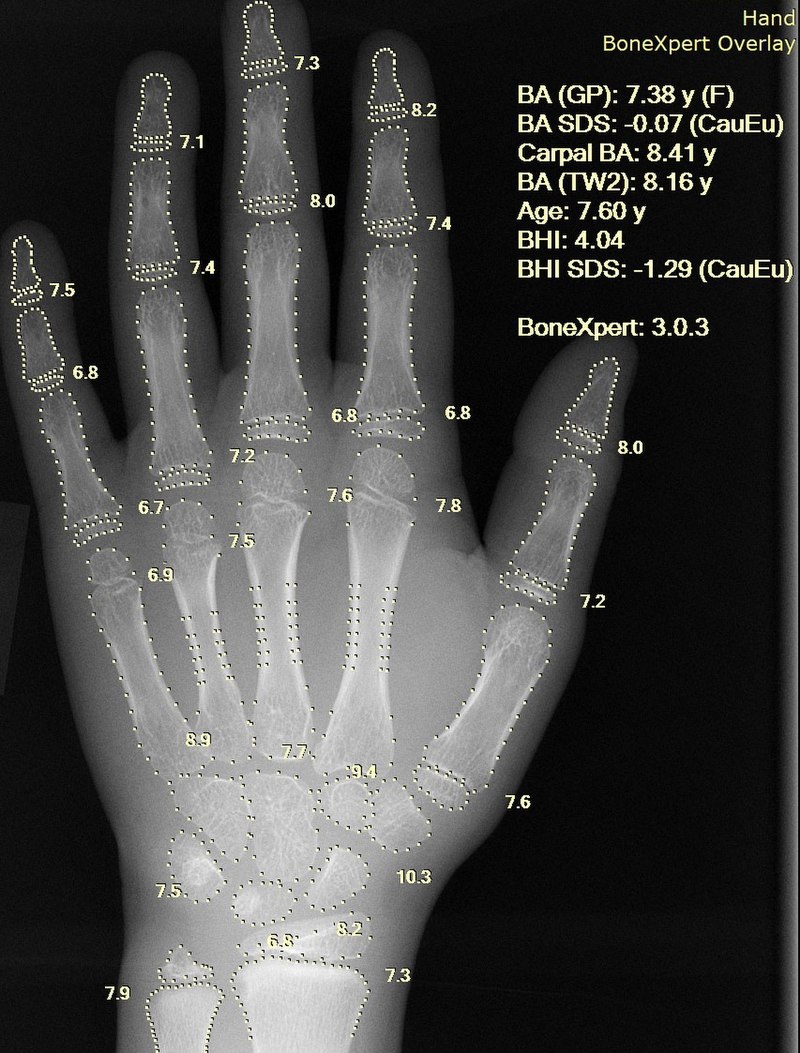Playlist
Show Playlist
Hide Playlist
Understanding Short Stature in Children
-
Slides Tracking Growth in Children.pdf
-
Download Lecture Overview
00:01 So understanding short stature is interesting because these children are too short for the parents' expectation or for your genetic expectation. 00:14 You might wonder what could be going on. 00:17 What's causing a child not to grow in terms of height. 00:20 This is a common concern and it's a symptom, not a disease. 00:26 So sometimes short stature is a normal phenomenon, or it can be a pathologic phenomenon. 00:35 There are several reasons why children might not gain appropriate height. 00:39 And short stature really is a phrase we use to reserve for any child who is less than third percentile for their expected height, given their age, gender, ethnicity, etc. 00:51 So, if we have a patient with short stature, it's important to ask a few key questions of the family and the patient as they come into the office. 01:00 First, it's important to identify any growth hormone deficiency or hypopituitarism. 01:06 The way you can ask questions about that are getting at issues that might have affected the pituitary gland. 01:13 Has this child had head trauma, or a brain infection, or a tumor around the pituitary gland' Is there some reason why this child might now suddenly have a deficiency of growth hormone? It's important to ask about abnormal development through childhood. 01:30 There are some genetic syndromes where children might be developing abnormally which can affect their eventual outcome. 01:38 An example, an obvious example would be Prader-Willi Syndrome. 01:42 In Prader-Willi, children in their first year of life tend to have failure to thrive and a difficulty with gaining weight. 01:49 And then after their first year of life, they start having hyperphagia and this pathologic desire to eat that invariably results in obesity. 01:59 It's also important to ask about the diet. 02:02 Ask questions about what this child's eating, what kind of nutrition this child is getting. 02:07 The diet can be a clue not only to social reasons for a child not growing or gaining weight, but also can be a clue regarding a disease process that might be affecting the child. 02:19 So how can we expect or calculate what we expect the child to grow' There's a simple equation that one can use. 02:28 Since boys tend to be a little bit taller than girls as their expected height, the end expected height on average and of course there's variability would be the father's height plus the mother's height and then add 13 centimeters and divide by 2. 02:46 If you do that, you will achieve the expected height of a boy when they grow up. 02:51 Likewise, a girl you simply take the father's height and the mother's height and subtract 13 centimeters and divide by two. 02:58 And that would be the roughly expected height, of course there's variability. 03:02 One of my own daughters is right on target, the other one's well below target. 03:07 That's fine, there's some variability but it gives you a good baseline point to start from. 03:12 We've all seen patients come in where both the mother and the father are much shorter and they have expectations that are perhaps over inflated for how much they expect their child to gain in terms of height. 03:25 It's also important when you examine a child where the chief complaint is, my child has short stature. 03:32 So look for other syndromes which might come with short stature. 03:36 There are some obvious ones like Down syndrome. 03:39 Down syndrome is generally, fairly, clearly, evident when you examine a child based on the faces alone. 03:46 Although you can, of course, look for sequelae which we'll talk about in a different lecture. 03:51 But there are other genetic syndromes that maybe a little bit more subtle, which you might miss at first glance. 03:57 An example would be Turner syndrome. 03:59 Turner syndrome absolutely results in shortened height in these girls. 04:04 And some of their findings like the webbed neck, or the increased internippleary distance or the shortened metatarsal are subtle findings. 04:15 So this is our example, Turner syndrome. 04:18 They have webbed neck, they have a high-arched palate which you might not see off the bat. 04:22 They have a short fourth metacarpal which you can see right here on this x-ray. 04:27 If we look carefully at the metacarpals of that hand, they're a little bit shorter. 04:30 They can also have a shield chest or wide spaced nipples, or a bent arm bone. 04:36 But these findings have a variability in terms of how much you can see until they may be subtle to pick up. 04:43 So if we see a child with short stature, we have to be thinking about what are all the causes that could be resulting in this child having a shorter than expected height. 04:55 Certainly, the most common cause is constitutional delay. 05:00 And we'll spend some time talking about that in a bit, but all this is, is the child going to end up at the correct height. 05:06 They're just having a later growth spurt. 05:08 It could be that the whole family had a short stature, and this is actually the expected height. 05:14 It could be they have a genetic syndrome like we talked about before. 05:18 And another challenging one early in life to figure out is achondroplasia, which can be a de novo mutation in a child and that child is obviously going to achieve a much smaller height. 05:30 From an endocrine standpoint, hypothyroidism can cause short stature. 05:34 So you might think about asking questions about increased sleepiness, another symptom of hypothyroidism. 05:39 Cushing syndrome can result in shorter height until you might inspect for things like moon facies, striae, findings of Cushing syndrome. 05:48 Growth hormone deficiency absolutely exists and can be idiosyncratic and that it can just happen. 05:55 And growth hormone deficiency absolutely will result in a shorter height. 06:00 Keep in mind that the main hormone regulating growth in the first year of life is the thyroid. 06:06 So these children may develop shorter stature after their first year of life. 06:11 Systemic diseases commonly cause shorter height. 06:15 Things like celiac disease where they're allergic to gluten and can't absorb appropriate calories. 06:20 Inflammatory bowel disease, same thing in addition there's some metabolic demand from the disease process itself. 06:27 Likewise, cystic fibrosis causes inability to gain calories. 06:32 Congenital heart disease can cause short stature by virtue of the increased metabolic demand that the heart requires to continue to pump blood and over circulate in one direction or the other. 06:45 Kidney disease commonly cause a short stature generally through increased metabolic demand. 06:51 Environmental causes of short stature are common, poor nutrition and child abuse, child neglect, reasons why children aren't getting the food they need. 07:01 Keep in mind, and we don't totally understand why, a neglected child may not gain weight even if they seem to be getting enough calories. 07:10 And exogenous glucocorticoid use, if frequent, can absolutely cause growth delay. 07:16 I once saw a patient who had frequent bouts of bronchiolitis and was inappropriately getting steroids and was failing to gain length because of the steroid administration.
About the Lecture
The lecture Understanding Short Stature in Children by Brian Alverson, MD is from the course Pediatric Endocrinology. It contains the following chapters:
- Short Stature: Diagnosis
- Signs & Symptoms
- Calculating Expected Height
- Clinical Presentation
- Causes of Short Stature
Included Quiz Questions
If the father of a boy is 180 cm and mother is 167 cm, on average, that boy’s eventual height is likely to be what?
- 180cm
- 182cm
- 178cm
- 176cm
- 184cm
A 13-year-old girl is brought to a pediatrician as she is shorter than her younger siblings. She has not had menarche yet. On physical examination, she has widely spaced nipples and webbed neck. Which of the following is the most likely cause of her short stature?
- Turner syndrome
- Down syndrome
- Patau syndrome
- Klinefelter syndrome
- Edward syndrome
Which of the following is the most common cause of short stature?
- Constitutional delay
- Endocrine disorder
- Systemic disease
- Growth hormone deficiency
- Poor nutrition
Customer reviews
4,0 of 5 stars
| 5 Stars |
|
0 |
| 4 Stars |
|
1 |
| 3 Stars |
|
0 |
| 2 Stars |
|
0 |
| 1 Star |
|
0 |
Good lecture, I liked the mentions of the different diseases and etiologies. It clarifies the whole topic.





